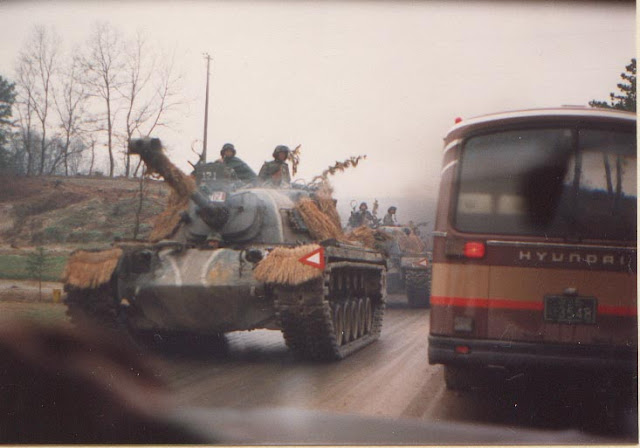One of the frequently visited topics of this blog is the change in various material items, or the introduction of technology. Some might suspect that the author might be, therefore, a Luddite, or perhaps a Neo Luddite. This is not so.
That is, I'm far from the vie that all technology is bad, but at the same time keep the point of view that the measure of a material things worth includes (but only includes) its effectiveness. Something that works well, works well. That means, of course, that something old that works well may work better than something new that doesn't work as well. For example, those who are familiar with ranching can't help but note that the horse has outlasted several of its intended replacements, in some of its traditional roles. I've seen the dirt bike, the three wheeler and the ATV all come and go as rivals to the horse. They just don't cut it in comparison, so the horse keeps on keeping on.

And many other examples of this can be found. Old Coke was better than "new Coke" because it was. Lots of old tools do the job as well or better than anything that comes after them. The big old heavy Dodge Power Wagons are still coveted because nothing compares to them in their intended use. Cast Iron cookery is better than newer items that are designed for the same purpose, not because they are old, but because the are better. Espousing all those things doesn't make a person a Luddite, just open minded.
All that is fairly obvious. When the truly open minded sometimes note that a really old technology or method remains applicable in the modern world in an unexpected way, however, it can be a bit of a shock. Retuning to the horse again, for example, its a mind bender to some to realize that there are armies in the world today that retain mounted troops, and that extensive field forces have been deployed of that type as recently as the 1980s, and actually much later. Both Portugal and Rhodesia, for example, deployed mounted infantry into the 1980s, in combat. And mounted rural patrols remain perfectly viable in some places, including parts of the U.S. border, today. That the horse would remain a viable platform should be self evident, but it comes as a shock. Its competitors, in this context, offer speed and lower training, but they also are inflicted with noise and cost. It's a cost balancing matter, therefore, and in some instance, the costs favor the horse. In a related sort of analysis, some work has been done by economist that show on small acreages horse drawn implements are actually more cost effective, if the cost of the human farmer's labor is deducted, than machinery, up until a certain point at which the speed of the machinery tips the balance. Noting that doesn't make a person a Luddite, just a bit eccentric.
What does make a person a bit of a Luddite, however, is refusing to accept that any technology is either an improvement or useful. . . or in sometimes necessary. I recently ran across an odd example of that.
As folks who stop here know, I'm a lawyer. Moreover, I'm a lawyer in Wyoming, which means that I travel around quite a bit. I was also an "early adopter" of the Internet, which was coming into law firms just at the time I entered the law, which is about a quarter century ago now. Most younger lawyers, I'm sure, can't imagine a day when every firm didn't have the Internet, but I do. We were just getting dial in when I started up. We still had to go to the county law library to use Westlaw at that time, which I frequently did. Now, of course, we all have West Law on our PCs, and were connected all the time, literally. Is that good or bad? Well, I've debated that, even here on this site, and there are good and bad elements to that. But anyway you look at it, it is.
Part of that, of course, includes email. We use email constantly. And it has very much impacted how we work, I realized today. And that's where, perhaps, the Luddite aspect of this kicks in.
I won't say that every type of business everywhere must have internet connectivity. But law firms must. A firm without the net is not only a rarity, but obsolete. I've come to assume that most law firms have a webpage dedicated to their firm. Having one wouldn't be absolutely necessary, but it's darned near necessary. It's like having a sign out in front of your shop.
Email is necessary. I don't know how any lawyer can operate without email. But today I ran across one, to my surprise, that didn't.
In this case the lawyer was across the continent, literally. I've been having trouble catching him by phone, and he's been having trouble catching me. That's easy to occur in this situation. When I first come into the office most mornings, I probably have a series of early morning emails to catch up with. At that same time, this fellow is doing his mid morning work. By mid morning, when I might have the best chance of calling from my office, he's probably gone for lunch. When he comes back and returns my call, I may be just getting back or be out doing something. If I call him after 3:00, he's probably gone, and so on.
However, if a person has email. None of this matters. I'd catch him first thing in the morning with an email, or vice versa, and we can exchange them over a day so that, in the course of one day, we'd probably be well on our way to having whatever it was all worked out. So, I went to find his firm website so I could send him an email.
Low and behold, I couldn't find a website, or even an email address. His state bar listing didn't even list a fax number. Finally, I had my secretary call his to ask for a fax number or email address. They did have a fax number.
Here I'll digress that whenever I call this office, the receptionist is invariably snooty. That may be, in part, because I have a Rocky Mountain accent (yes, there is such a thing) and I'm dealing with somebody who has a certain distinct regional accent. She might not be able to understand me, and I can't really understand her all that well. Or she might just be a bit rude. I always find that odd in a receptionist. I'm just trying to call her boss on a work matter, which would seemingly be good for us both. Treating me like an annoyance would not seem to be warranted. Oh well.
Anyhow, I resorted to the fax, a technology that seemed pretty amazing when I started 23 years ago but which now seems sort of redundant to email. Oh well. But here, I can't grasp how, or even why, somebody in this line of work wouldn't adopt this technology. Shoot, here we couldn't get by without it now, as everyone else has it, and that's the speed at which we must work. Indeed, even Iphones are a necessity, as they pick up email.



























